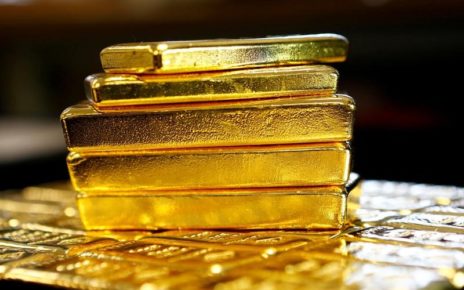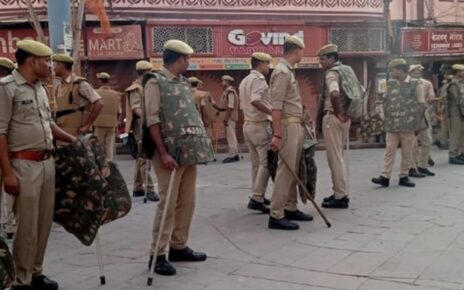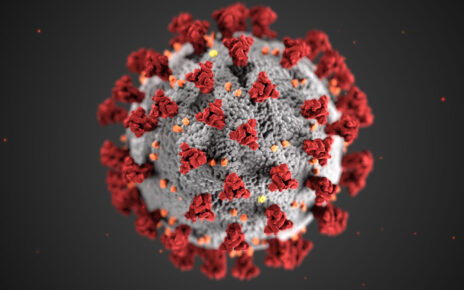ISLAMABAD
Cricketer-turned-politician Navjot Singh Sidhu, who had claimed that he will visit Pakistan as a ‘goodwill ambassador’, was clicked giving a warm hug to the neighbouring country’s Army chief General Qamar Javed Bajwa ahead of Imran Khan’s swearing-in ceremony.
According to media reports, Sidhu, the Congress Member of Parliament, was received by Gen Bajwa and other top officials at the President House in Islamabad – the venue of Imran Khan’s swearing-in ceremony.
The two exchanged pleasantries and were seen chatting happily before the start of the event.While the swearing-in ceremony was underway, Sidhu was spotted sitting next to President of Pakistan-Occupied-Kashmir (PoK) Masood Khan in the front row.
The disturbing images of Sidhu giving a warm hug to Gen Bajwa – the man who is widely believed to be behind the recent surge in cross-border infiltrations and attack on security forces and civilians in Jammu and Kashmir, is likely to trigger a massive outrage upon his return to the country.
The development is also likely to come as a big embarrassment to his Congress party. ”He is a responsible person and a minister. Only he can answer, but yes he could have avoided this,” Ghulam Ahmed Mir, J&K Congress Chief said when quizzed by reporters.
Besides Sidhu, Kapil Dev and Sunil Gavaskar were also reportedly invited to Imran Khan’s swearing-in ceremony but they decided to skip the event.
Sidhu, reacting to the controversy over his decision to attend the event, said that he will go to Pakistan as the ‘goodwill ambassador’. However, he was not officially sent to Pakistan as ”goodwill messenger” and, instead, went there in his individual capacity.
“I respect the foreign policy of the government and the country, but this is a personal invitation,” he said, adding that sportspersons and artists break barriers.
Reacting to this, BJP leader Subramanian Swamy launched a massive attack on Sidhu and said that he was mentally stable.
The BJP veteran went on to say, “Even if Sidhu goes to Pakistan, it will hugely affect his political career. People will think him a traitor and will never forgive him.”
Imran Khan was earlier sworn in as Pakistan’s new prime minister at a simple ceremony at the President House in Islamabad.
Khan, 65, the chairman of the Pakistan Tehreek-e-Insaf (PTI), was administered the oath of office by President Mamnoon Hussain at a simple ceremony held at the Aiwan-e-Sadr (the President House) in Islamabad.
The ceremony commenced with the national anthem, followed by recitation of verses from the Holy Quran.
Clad in a black sherwani, Khan was seen little nervous as he faced difficulties in pronouncing some Urdu words during the oath.
Khan, who famously captained the national cricket team to World Cup glory in 1992, also invited some of his former teammates to witness his formal ascension to the top ministerial job in the country.
Pakistan Army Chief Gen Qamar Javed Bajwa, cricketer Navjot Singh Sidhu, cricketer-turned-commentator Rameez Raja, legendary paceman Wasim Akram, Punjab Assembly Speaker Chaudhry Pervez Elahi, singers Salman Ahmed, Abrarul Haq, actor Javaid Sheikh, former National Assembly Speaker Dr Fehmida Mirza, Khan’s third wife Bushra Maneka were among those who attended the oath-taking ceremony.
The Oxford-educated PTI chief had on Friday defeated his only rival and Pakistan Muslim League-Nawaz chief Shahbaz Sharif in a one-sided election for the top post in the National Assembly.
Khan secured 176 votes while Sharif got 96 votes. A total of 172 votes in the 342-member lower house of parliament are needed to form a government.
In his first address to Parliament, Khan had vowed to act against those who looted Pakistan.
“I promise my nation today that we will bring the change that this nation was starving for,” Khan said yesterday after winning the election.
“We have to hold strict accountability in this country; the people who looted this country, I promise that I will work against them,” he vowed.
“The money that was laundered, I will bring it back – the money that should have gone towards health, education, and water, went into people’s pockets,” Khan said.
Khan, who described Pakistan’s founder Mohammad Ali Jinnah as his hero, has promised to transform corruption affected Pakistan into an Islamic Welfare state.
He has the support of smaller parties including Muttahida Quami Movement with seven seats, Balochistan Awami Party five, Balochistan National Party four, Pakistan Muslim League three, Grand Democratic Alliance three, Awami Muslim League and Jamori Watan Party one seat each.
The PTI emerged as the single largest party with 116 seats in July 25 elections. Its number increased to 125 after nine independent members joined it and final tally reached 158 after it was allotted 28 out of 60 seats reserved for women and five out of 10 seats reserved for minorities.
Khan’s upcoming government will be the third consecutive democratic government in Pakistan since 2008 when military ruler Gen Pervez Musharraf announced elections after serving as president from 2001 to 2008 following a bloodless coup in 1999.
The PPP formed the government in 2008, followed by the PML-N led by jailed former prime minister Nawaz Sharif in 2013.
Pakistan’s powerful military has ruled the country through various coups for nearly half of the country’s history since independence in 1947.




